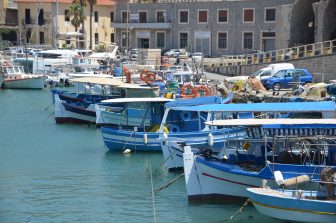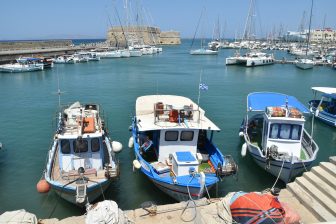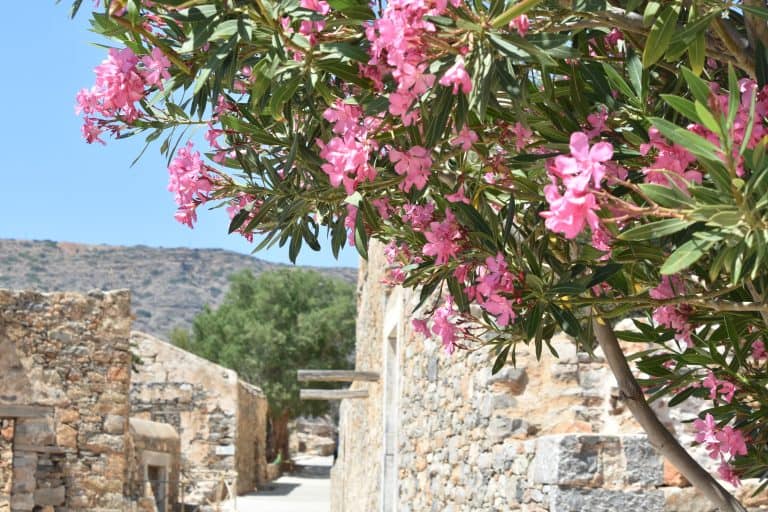
[June 2025] One of the destinations we visited from Agios Nikolaos in eastern Crete, Greece, was Spinalonga Island.
It’s famous as the island where leprosy patients were quarantined in the early 20th century.
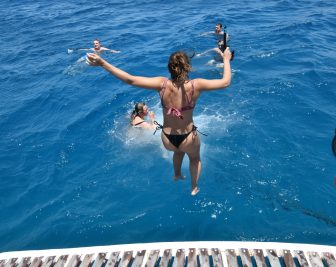
I remembered reading a novel called “The Island” by Victoria Hislop a long time ago, but I had forgotten that it was set on Spinalonga Island.
We took a sightseeing boat to this island.
On this day in June, the boat runs twice a day, and ours departed at 12:30.
The fare was €25 per person, and a guide was included.
No reservations were required.
Our first destination was Kolokitha Bay, where we had 30 minutes to swim.
It’s one of those things where you jump into the sea from the boat.
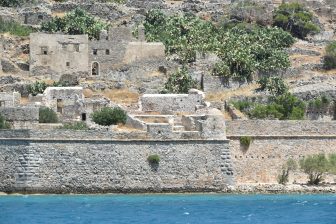
We knew the water would be cold, so we had no intention of jumping in, but people of all ages and genders were jumping in.
The water was incredibly clear and looked refreshing.
Next, we headed to Spinalonga Island.
It cost €20 per person to enter the island.
Perhaps because of that, we saw some young people swimming on the shore instead of going inside.
Two guides, one speaking English and one speaking German, led each group.
The English guide was a plump lady named Gloria, who gave us a brief overview in the shade under an arch.
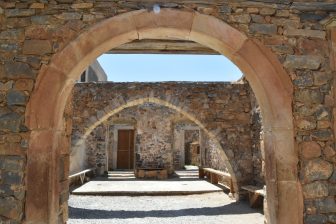
The main point she talked about was that 1,100 leprosy patients lived on the island and had become a well-organized community.
Despite the leprosy, people still lived their lives normally.
I forgot the exact number, but apparently there were a triple-digit number of weddings and births during this period.
However, healthy children were separated from their parents and placed in facilities in Athens.
When the quarantine was first decided, only sick people from Crete were quarantined, but after Crete officially became part of Greece, sick people from all over Greece were quarantined here.
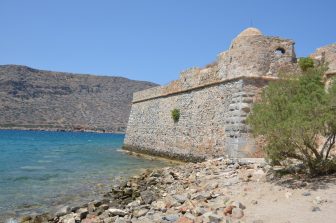
By the way, Crete gained independence from Ottoman Turkey at the end of the 19th century and became an autonomous state, but was annexed by Greece in 1913.
Some of those who were allowed to return to the mainland found life difficult and returned to the island.
Gloria wanted to emphasise that the island was not like a prison.
Apparently, treatment for leprosy became available in the mid-20th century, and quarantine ended.
By the way, this island was once a fortress of the Principality of Venice in the 16th century.
It later came under Turkish rule in the early 18th century.
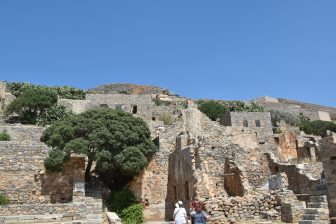
After the isolation of lepers ended, archaeologists entered the island, but because their interest was in the island’s ancient history, all traces of the patients’ lives were removed.
So, the island where we spent the rest of our time until our meeting was completely deserted and reduced to ruins.
I think the more recent history of the lepers is more relevant and interesting.
Still, it was a fascinating experience.
My husband seemed inspired as well.

